By ANN Editor-In-Chief, Jim Campbell
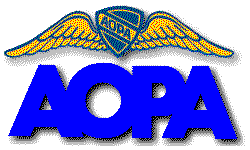 I accepted
an invitation to travel with AOPA President Phil Boyer the other
day, as much to see the organizational aspects of how he works, as
the specific project (the dedication of a pilot facility at the
Wright Memorial) itself. It was an illuminating day.
I accepted
an invitation to travel with AOPA President Phil Boyer the other
day, as much to see the organizational aspects of how he works, as
the specific project (the dedication of a pilot facility at the
Wright Memorial) itself. It was an illuminating day.
I christened Boyer the "Hardest Working Man in GA" some time ago
and the day we spent surely proves that I was on target with this
appellation. An average "on-the-road" day with Boyer is a demanding
routine… with little wasted time and a strong effort to cram
as much detail in as humanly possible.
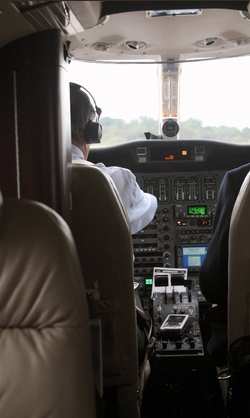 As many of you know, I can be highly critical of
the leadership that exists in the aviation community (mostly
because too many of our leaders seem to be unaware of the
responsibility they have to the community they are supposed to
serve) and despite the fact that Boyer can be brutally direct,
stubborn when convinced of his correctness and highly opinionated
(which makes him a VERY interesting guy to disagree with); he's as
passionate about GA as any guy I know, and single-mindedly
dedicated to the welfare of his members. No kidding… if you
want to see Phil get mad (quite justifiably, I might add), just
suggest that he doesn't know what his members want of him or that
he isn't serving their interests… and then stand back. It
ain't pretty (grin).
As many of you know, I can be highly critical of
the leadership that exists in the aviation community (mostly
because too many of our leaders seem to be unaware of the
responsibility they have to the community they are supposed to
serve) and despite the fact that Boyer can be brutally direct,
stubborn when convinced of his correctness and highly opinionated
(which makes him a VERY interesting guy to disagree with); he's as
passionate about GA as any guy I know, and single-mindedly
dedicated to the welfare of his members. No kidding… if you
want to see Phil get mad (quite justifiably, I might add), just
suggest that he doesn't know what his members want of him or that
he isn't serving their interests… and then stand back. It
ain't pretty (grin).
I met Phil at AOPA's CitationJet at 0700 (that's a big OUCH for
yours truly, who usually works to 0200-0400 each day). Fully
prepared for a four-leg round trip to Manteo (NC, with a stop on
the way to pick up an additional pax), for the dedication of the
AOPA Pilot Facility to be built at the nation's first flight
memorial, Boyer was cordial; but he was all business, as he made
ready to depart FDK in N4GA. Boyer has logged over 1200 hours in
the CitationJet after taking an aggressive FlightSafety training
course (which he reportedly finished fairly quickly) designed to
prepare him for the rigors of single pilot operation in Cessna's
hot little pocket rocket. The "CJ" is a tool that originally drew
some criticism from AOPA members for the cost involved, but has
ultimately proven itself to most of them as Boyer's extensive and
oft-tight travel schedule made the use of a twin jet a necessity
rather than a luxury.
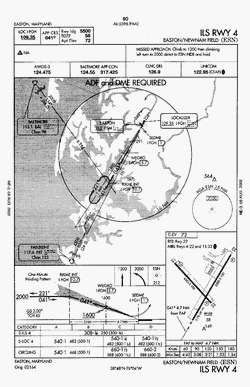 Boyer is a very detail-oriented guy… a
personality characteristic that proves out well for single pilot
jet/IFR operations. Single pilot jet ops should not be all that
demanding when you consider the fact that turbines are a lot less
tasking in various roles than the semi-equivalent piston birds (ask
any hard IFR Baron driver for his latest tale of woe)… until
you factor in the fact that decisions and processes occur much
faster, and in many cases more frequently (from a quantitative
standpoint) as a result of the added capabilities that come with
the performance associated with a jet. Single pilot ops in a jet
are, therefore, not for the faint of heart or the amateur…
Boyer proves, demonstrably and convincingly, to be neither.
Boyer is a very detail-oriented guy… a
personality characteristic that proves out well for single pilot
jet/IFR operations. Single pilot jet ops should not be all that
demanding when you consider the fact that turbines are a lot less
tasking in various roles than the semi-equivalent piston birds (ask
any hard IFR Baron driver for his latest tale of woe)… until
you factor in the fact that decisions and processes occur much
faster, and in many cases more frequently (from a quantitative
standpoint) as a result of the added capabilities that come with
the performance associated with a jet. Single pilot ops in a jet
are, therefore, not for the faint of heart or the amateur…
Boyer proves, demonstrably and convincingly, to be neither.
Quite a few years ago, I spent time as a flight crew training
instructor for a major international airline and every time I fly
with someone, I slip into an evaluative/Instructor role (which has
only added to my rep as a pain in the butt). Early on, I developed
an appreciation for pilots who understood the importance of
methodical cockpit discipline and prioritizing the decision-making
process. I have learned to identify, very quickly, the pros from
the guys who are struggling to keep up. Boyer adheres to checklist
protocols religiously, and manages to keep a good scan going with
plenty of "heads-out" efforts to see what's happening externally
(one of the most common problems with IFR hot-shots is the fact
that they keep their heads buried in the gauges and don't look out
as much as they should…). Boyer needs no periscope; he's got
a great "scan" that balances the exterior and the interior items
that demand his attention. Yeah, he knows what he's doing.

I flew right seat with Boyer for most of the day, sharing
several legs though some moderately demanding IFR legs that were
needlessly complicated by ATC's lack of awareness of the real
status of the ILS at Easton MD. They had NOTAM'ed it closed 'way
too early, until Phil took the initiative to call Easton Unicom and
get the assurance of the airport operators that the NOTAM
referenced by the controller (and NOT included in the brief prior
to the flight) was being activated too early. Finally getting the
controller to check his notes, and after two interesting missed
approaches (that showed the reported 600-700 foot ceilings were
more like 400 feet, if that), we were cleared for the ILS 4
approach and taxied into Easton only slightly later than
expected.
We wound up shooting two "misses" before ATC realized that Phil
was right and they were wrong. You gotta love a guy who can
politely, but firmly, get ATC to get their act together while up to
his (anatomical reference deleted) in the soup. You learn a lot
about a pilot when he has to pull a "miss" in a non-precision
approach environment. The first miss was pretty much a wash, as low
scud obscured the field until we were just over and slightly abeam.
The next one gave us just enough of a view to make a run for the
field but the poor viz yielded it so late in the approach that the
CJ was simply not going to be able to slow and land in the space
available. The decision to miss was made long before the situation
got even remotely difficult, and I was pleased (again) to
see him keep up an aggressive exterior scan as he executed the
miss, informed ATC of his intentions, and above all else, kept
flying the airplane.
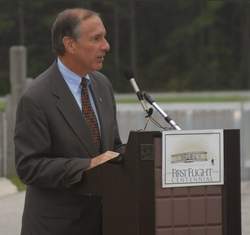 While
working the second miss and cleaning up the airplane, I relayed
ATC's message that the ILS was, indeed, open and Phil got fast
vectors for a pretty easy approach (the ILS inbound was a bit less
viz-restricted than the GPS approach had been) and a center-line
touchdown. Not bad… even for an Association President
(grin).
While
working the second miss and cleaning up the airplane, I relayed
ATC's message that the ILS was, indeed, open and Phil got fast
vectors for a pretty easy approach (the ILS inbound was a bit less
viz-restricted than the GPS approach had been) and a center-line
touchdown. Not bad… even for an Association President
(grin).
The CitationJet was to carry a total of five people from Easton
to Manteo, and 60 gallons a side was added to offer the needed
range and IFR reserves (as well as to keep the weight within limits
for the runway requirements for the mission of the day). With
little delay, we "turned and burned," IFR to Manteo, dodging a fair
amount of weather and restricted airspace before being rewarded
with early "direct" clearance to Manteo that gave us some relief
from the time deficits we had piled up while playing missed
approach at ESN.
On the way down, Boyer and I chatted seriously about the demands
to be faced by a postulated growth in future light jet operators
that may come about as the result of the Eclipse 500 and Citation
Mustang programs that could put such aircraft, financially
speaking, within the reach of a whole new generation of aviators.
His concerns are tempered by the excitement he also sees ahead for
aviation as new capabilities are offered to such pilots. Based on
his experience with the CitationJet (a machine he transitioned to
from a Cessna Conquest turbo-prop), he is very interested in the
training programs that will prepare such pilots for these aircraft
as well as the critical avionics installed to support operations in
these aircraft.
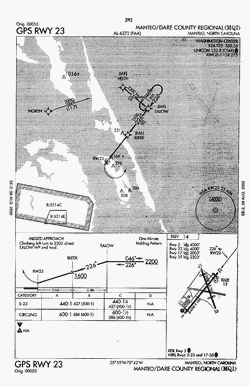 He pointed to the nicely-integrated avionics
system in the CJ that is ably assisted by a fairly accomplished FMS
(Flight Management System). Boyer has obviously already learned
that while always "hand-flying" may seem like the macho pilot thing
to do, that the trick to managing this environment is to learn the
aircraft's system aggressively and let the airplane do the flying
wherever possible, keeping a keen eye on all things until physical
control/intervention is required. Boyer plays the CJ's FMS like a
piano (really… even though he's flown the bird a lot…
I've flown with quite a few Captains who still worked the FMS
reluctantly… like it was a nuclear reactor) and still
maintains a strong cockpit discipline that keeps him ahead of the
aircraft's high-speed requirements. One item he is particularly
enthused about (and uses to great effect) is the availability of
airborne datalink -- it frees pilots from having to play all kinds
of radio games to get info that is now available on a
multi-function display with a few jabs of a button.
He pointed to the nicely-integrated avionics
system in the CJ that is ably assisted by a fairly accomplished FMS
(Flight Management System). Boyer has obviously already learned
that while always "hand-flying" may seem like the macho pilot thing
to do, that the trick to managing this environment is to learn the
aircraft's system aggressively and let the airplane do the flying
wherever possible, keeping a keen eye on all things until physical
control/intervention is required. Boyer plays the CJ's FMS like a
piano (really… even though he's flown the bird a lot…
I've flown with quite a few Captains who still worked the FMS
reluctantly… like it was a nuclear reactor) and still
maintains a strong cockpit discipline that keeps him ahead of the
aircraft's high-speed requirements. One item he is particularly
enthused about (and uses to great effect) is the availability of
airborne datalink -- it frees pilots from having to play all kinds
of radio games to get info that is now available on a
multi-function display with a few jabs of a button.
The approach to Manteo's Dare County Airport was fairly easy, as
the WX had lifted a bit, and about an hour and half after leaving
FDK (along with 4 approaches, two landings, and a pax pickup), N4GA
taxied into Manteo where the Airport Manager awaited with a van to
take us all to the dedication ceremonies--to be held in the shadow
of the Wright Memorial, the very birthplace of manned flight.
Oh yeah, to give credit where credit is due, Phil nailed the
centerline again (and never missed one as long as I was around). As
he quickly exited the CJ, he put in a fuel order, gathered his
troops and transitioned from jet-jock to Association
President.
It was just after 0915, and there was work of an altogether
different kind to be done…. (to be continued)
 Oshkosh Memories: An Aero-News Stringer Perspective
Oshkosh Memories: An Aero-News Stringer Perspective NTSB Prelim: Piper PA32RT
NTSB Prelim: Piper PA32RT ANN FAQ: Follow Us On Instagram!
ANN FAQ: Follow Us On Instagram! Aero-News: Quote of the Day (05.28.25)
Aero-News: Quote of the Day (05.28.25) ANN's Daily Aero-Term (05.28.25): Pilot Briefing
ANN's Daily Aero-Term (05.28.25): Pilot Briefing








